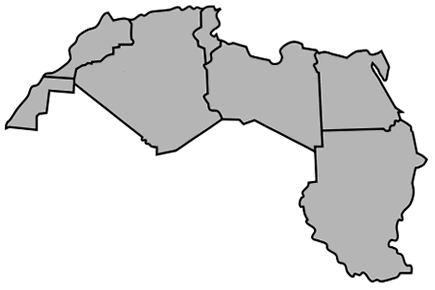North Africa
Welcome to the North Africa Browser. Please select a country from the map.
northmapinter.png
Women’s rights in North Africa vary from state to state. Due to the lack of legal provisions and societal norms, violence against women is widespread in the region. Domestic violence and spousal rape are a common occurrence and are not considered crimes in most of the countries.
In Tunisia, which has some of the most comprehensive laws protecting women from violence, authorities refuse to intervene in cases of domestic violence because it is understood to be a private issue. Unlike the rest of the region, due to the instability in Sudan, women are more susceptible to violence against women outside the home, which can include rape and abduction.
The Family Codes of Algeria, Egypt, Libya, and Morocco, which follow Islamic Sharia law, expressly allow for polygamy, but place limitations on the practice. The countries that have placed limitations on the practice, for instance Morocco, have seen a rapid decrease in polygamous marriages. In general however, there are only nominal numbers of polygamist in the region. In Sudan polygamy is also legal, yet unlike the other countries in region, it is widely practiced. In the same vein, inheritance rights, also governed by Sharia law, are widely discriminatory against women in all countries of the regions.
Female genital mutilation (FGM) is not prevalent in the region. However, despite conflicting sources, female genital mutilation (FGM) is almost universally practiced in Egypt. The only other state in the region that has high occurrences of FGM is Sudan, in which most females have undergone the most severe form of FGM, infibulations.
Within the Norther Africa, there are the following countries: Alegeria, Egypt, Libya, Morocco, Sudan, Tunisia, Western Sahara.
